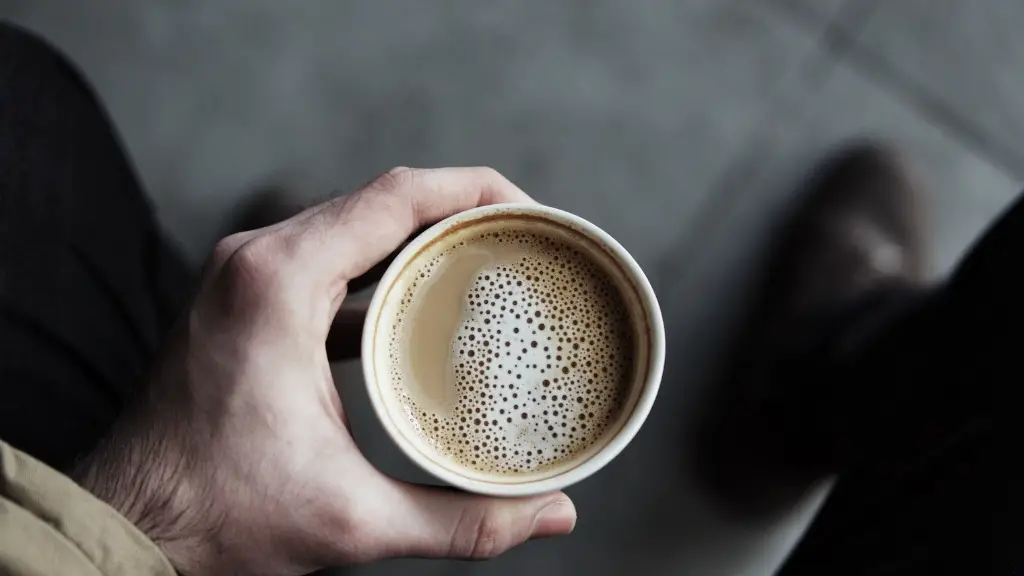Can I Drink Coffee During a Migraine?
Migraines are debilitating neurological conditions that can leave you feeling exhausted, sick and uncomfortable. Oftentimes, the first response might be to reach for a cup of coffee and hope that it mitigates your distress. However, the effects of caffeine on migraines and whether or not you should drink coffee when experiencing a migraine is complex and nuanced.
First, it is important to recognize that migraine and caffeine sensitivity are unique to the individual. Some people may find that the effects of caffeine are soothing and aid in the relief of migraine symptoms, while others may find that the opposite is true. According to the American Migraine Association, some studies have shown that caffeine can be of particular benefit to those who have missed out on sleeping due to the severity of the migraine.
On the other hand, the American Academy of Neurology notes that any beneficial effects of caffeine to migraines may be short-lived, or nonexistent in some cases. It is important to note that drinking caffeine while suffering from a migraine is not a proven remedy and may in fact lead to further complications. Therefore, it is vital to take into consideration the timing of your caffeine intake and consult with your doctor to discuss any potential adverse side-effects.
Moreover, if you are prone to suffering from frequent migraines, it is highly recommended to reduce your intake of caffeine altogether. There is evidence to suggest that high volumes of caffeine can contribute to the severity of headaches and the frequency of occurrence. For those who choose to continue drinking coffee, maintaining moderation and drinking only occasionally is key.
From a medical standpoint, the effectiveness of caffeine on migraines is inconsistent and unpredictable. It is important to stay aware of your body’s responses to caffeine and to adjust your intake accordingly. Furthermore, by understanding which common triggers are associated with your migraine, you may be able to overcome them with a more precise and effective remedy.
Caffeine: A Potentially Beneficial Resource for Chronic Migraine?
While caffeine does not have a significant effect on acute migraines, there is a growing body of evidence that suggests that it could be an effective resource in reducing the frequency and severity of chronic migraines. For example, an article published by the American Academy of Neurology in 2016 found that regular consumption of caffeine-containing beverages’ was associated with a reduction in migraine frequency in patients with frequent migraine attacks.
Furthermore, a study published in Cephalalgia found that those who consumed between 50 and 300mg of caffeine throughout the day were more likely to report a decrease in the intensity and duration of migraine episodes. The study also noted that the effects of caffeine were particularly beneficial for those whose migraine symptoms had not responded to other forms of treatment. These results suggest that caffeine may indeed have a positive effect for those with chronic migraines.
However, a further article from the journal Headache states that further research must be conducted to assess the potential benefits of caffeine as a preventative measure for migraine. As an individual’s response to caffeine can differ greatly from that of another, the effects of caffeine may also be dependent on individual sensitivities.
Caffeine in the Context of Other Migraine Treatment Options
Caffeine is just one of the many treatment options available for those suffering from migraines. An article from the United Nations Educational, Scientific and Cultural Organisation (UNESCO) outlines the existing treatments available to those with migraines, which include lifestyle modifications, pain relievers, anti-emetics, medications and drug therapy to reduce inflammation.
It is important to know that caffeine has not been conclusively proven as an effective form of treatment and should not be seen as a definitive or primary source of migraine relief. Instead, seek to identify the underlying cause of your migraine and to begin the process of choosing an effective treatment route.
Moreover, the article from the UNESCO explains that stress management and relaxation therapies may provide migraine and headache relief, as well as improving general wellbeing. Therefore, for those seeking more comprehensive and permanent relief than that of caffeine, seeking to identify the root cause of the migraine and to address it methodically through lifestyle and medical interventions should be the primary focus.
Influence of Surrounding Environment and Posture on Migraines
When it comes to migraine relief, the environment you are in and your posture can be just as influential as lifestyle and medical factors. Firstly, the temperature of your environment can have a profound impact on migraine symptoms and should be considered with caution. According to the American Migraine Foundation, it is recommended to avoid discussing in environments that are excessively hot or too cold as these can aggravate migraine symptoms.
Additionally, being cognizant of your posture and positioning can help manage your migraine. The Foundation states that lying down and repositioning yourself to a comfortable posture can help alleviate some of the pain you might be experiencing. Additionally, if lying is not possible, then sitting upright in a comfortable chair and relaxing will also be beneficial.
Alternative Medicines for Migraines
While the medical community has yet to fully explore the possibilities of alternative medicines for migraines, certain treatments have been of particular benefit to those who suffer from migraines. Firstly, the article from UNESCO stresses the importance of massage therapy in helping to reduce muscle tension and relaxation, which can aid in providing migraine relief.
Acupuncture is another form of therapy that has been proven to be effective at treating such conditions. A study published in the British Medical Journal of Complementary Medicine in 2018 found that regular acupuncture treatments provided a significant improvement in migraine symptoms, particularly among those with more severe varieties of the condition. However, acupuncture is certainly not a definitive method and its effectiveness may vary from person to person.
In addition to acupuncture, the practice of mindfulness and meditation have also been found to be effective alternatives for migraine relief. A study from The Journal of Headache and Pain notes that practicing mindful meditation for 8 weeks can play a significant role in reducing the frequency, intensity and duration of migraine episodes.
Caffeine and Migraines: Things to Consider
In conclusion, the effect of caffeine intake on migraine symptoms remains complex and unpredictable. There is no definitive answer to whether or not you should consume coffee while suffering from a migraine. Yet, it is important to consider both the positive and negative consequences of consuming caffeine and to be aware of your body’s responses. Furthermore, it is recommended to limit your intake and remain mindful of any potential triggers in order to avoid any further complications.
In addition to this, exploring alternative medicines and treatments that are tailored to your individual needs may be of more benefit than relying solely on caffeine. As such, consulting with a healthcare professional as well as conducting personal research is vital. Ultimately, it is important to consider all factors related to your particular situation and to remain mindful of the potential risks when consuming caffeine.




